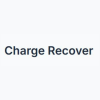Introduction
In the world of online commerce, chargebacks are an ever-present risk. While some are legitimate—such as those caused by unauthorized transactions or billing errors—many are the result of fraud, both intentional and unintentional. For merchants, these fraudulent chargebacks can lead to significant financial loss, reputational damage, and increased scrutiny from payment processors.
This is where Chargeback Fraud Insurance comes into play. It acts as a financial buffer, helping merchants recover losses from fraudulent disputes while giving them peace of mind in an unpredictable transaction environment.
What Is Chargeback Fraud?
Chargeback fraud occurs when a customer knowingly or unknowingly disputes a legitimate transaction, claiming it was unauthorized or that they never received the goods or services. This can happen in a few common scenarios:
- Friendly Fraud: The customer forgets the purchase or denies it intentionally to get a refund.
- Stolen Credit Card Use: A third party uses a stolen card for a purchase, and the real cardholder files a chargeback.
- Digital Goods Abuse: Digital items like software, ebooks, or online subscriptions are often targeted since there's no physical return process.
Regardless of the motive, chargeback fraud costs merchants billions globally every year.
What Is Chargeback Fraud Insurance?
Chargeback Fraud Insurance is a specific type of coverage that reimburses merchants for the financial losses associated with fraudulent chargebacks. It's designed to protect businesses from the rising threat of deceitful customer disputes, especially those involving card-not-present (CNP) transactions in eCommerce.
Unlike standard chargeback management services that only help fight disputes, insurance policies compensate merchants directly for qualifying losses due to fraud-based chargebacks.
How Does It Work?
While terms vary depending on the provider, here’s a general overview of how Chargeback Fraud Insurance typically works:
- Transaction Monitoring: Your payment system is integrated with the insurer’s fraud detection tools.
- Covered Transactions: Transactions approved by the fraud engine are insured.
- Dispute Occurrence: If a chargeback is filed on a covered transaction and is determined to be fraudulent, the merchant submits a claim.
- Payout: Upon approval, the insurance covers the disputed amount (sometimes minus a deductible or fee).
This coverage gives merchants peace of mind knowing that even if fraud gets past their defenses, they won’t be left bearing the full cost.
Why Merchants Need Chargeback Fraud Insurance
1. Financial Security
Chargebacks can be expensive. Beyond the cost of the refunded product or service, merchants also face fees and penalties. Insurance helps recoup some of these losses, making it easier to maintain profitability.
2. Operational Stability
Frequent chargebacks can lead to account freezes or even termination by payment processors. Having insurance allows merchants to weather high-risk periods without crippling consequences.
3. Better Risk Management
Paired with real-time fraud detection tools, Chargeback Fraud Insurance encourages merchants to build smarter risk practices and transaction approval strategies.
4. Confidence in Scaling
For growing businesses, expanding sales often means increased exposure to fraud. Insurance can be a key tool to scale operations without fearing financial ruin from chargebacks.
What’s Covered and What’s Not
Typically Covered:
- Fraudulent transactions involving stolen payment information
- Friendly fraud where chargeback disputes are deemed illegitimate
- Some cases of transaction disputes from international buyers
Typically Not Covered:
- Legitimate service or product disputes
- Violations of card network rules or merchant agreements
- Chargebacks due to merchant error (e.g., double billing or failure to deliver)
Understanding what’s included in your policy is essential before relying on it as a protective measure.
Final Thoughts
As eCommerce continues to grow, so does the complexity of fraud and chargeback schemes. While no system is 100% foolproof, Chargeback Fraud Insurance offers an additional layer of protection that many merchants can’t afford to ignore.
By combining insurance with solid chargeback prevention practices, responsive customer service, and reliable payment infrastructure, businesses can drastically reduce their exposure to financial and reputational harm.
In the ongoing battle against chargeback fraud, insurance isn’t just a safety net—it’s a strategic asset.

